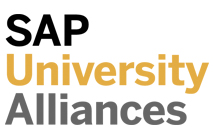This program is no longer accepting applications. If you are currently enrolled in this program, please email the program contact about plans for completion.
About the program
The Supply Chain Management - Global program will prepare you for careers in the fields of logistics, procurement, supply chain and operations. Through extensive practical learning activities, you will enhance your knowledge of supply chain concepts applicable to a variety of sectors. You will be well-prepared to support the management of job functions by examining the connections between strategic objectives, stakeholder expectations, and supply chain design, functions, processes and roles. You will determine the value-added and financial implications of supply chain decisions and design on business profitability, efficiency and stakeholder satisfaction; using risk mitigation tools and strategies; reviewing supply chain activities and transactions for compliance with relevant policies, standards, legal, regulatory and contractual obligations; collaborating with, and using leadership and communication skills to build strategic relationships with a diversity of stakeholders. This program has been approved for advanced standing towards attaining the Certified Supply Chain Leader (CSCL) designation.
Program information
Course fees to complete this program total approximately *$9,300.00.
*This is the estimated amount for domestic students and may differ if students take equivalent courses. Fees are paid when registering for each individual course and are subject to change each term.
Admission requirements
- A two- or three-year Diploma, or a Degree, in Business or a Degree in Engineering from an accredited College or University.
- Preference will be given to graduates with a business diploma or degree. Engineering graduates should have business courses or have business experience and will be considered on a case-by-case basis based on their transcripts and work experience.
- Applicants with 5+ years of experience in the supply chain field with no post-secondary credential will be considered.
Note re: admission requirements
- Canadian citizens and permanent residents with transcripts from outside Canada require a course-by-course credential evaluation. You can request this through an approved provider such as ICAS or WES.
- Applicants with transcripts from institutions where the language of instruction is not English must demonstrate English language proficiency. Please refer to English language requirements for details.
Admission procedures
- Apply at Ontario Colleges - www.ontariocolleges.ca
- Final selection is made following an assessment of the admission requirements.
Program requirements
- Students must have reliable Internet access and a device that meets these requirements.
- This program uses eTexts.
Graduate opportunities
Unsure which program best suits your long-term career goals? Student Recruitment Advisors can provide one-to-one advising for prospective domestic students looking to take a program at Conestoga College. Please email SRA@conestogac.on.ca to book an appointment.
For more details on related occupations, job market information and career opportunities, see the Government of Canada website: https://www.jobbank.gc.ca/home
Program outcomes
- Examine the connections between strategic objectives, stakeholder expectations, and supply chain design, functions, processes and roles, to guide decision-making, problem-solving and coordination of tasks.
- Determine the value added and financial implications of supply chain decisions and design on overall business profitability, efficiency and stakeholder satisfaction.
- Ensure supply chain activities and transactions are compliant with relevant legal, regulatory and contractual obligations, and industry and organization standards and policies for quality, health, safety, accountability, social and environmental responsibility.
- Use risk mitigation tools and strategies to inform supply chain management decisions.
- Contribute to the acquisition and sale of goods, services and materials in accordance with best practices and public and private sector stakeholder expectations across a variety of industries.
- Contribute to the strategic planning and scheduling of material requirements, resource allocation and inventory for efficient production and fulfillment of customer orders and returns.
- Coordinate the efficient handling and movement of goods, services, materials and related information within and between supply chains.
- Contribute to the identification and management of continuous improvements to functions and processes within and between supply chains.
- Use available technologies to enhance work performance and support supply chain functions, processes, transactions and communications.
- Monitor relevant trends, emerging technologies, and local and global economic, political and environmental issues to enhance work performance and guide management decisions.
- Use leadership and communication skills to establish and manage strategic relationships with a diversity of stakeholders and support the achievement of business goals.
- Develop and apply ongoing strategies for personal, career and professional development.
Program related resources
Program contact
- Shayna Zinger
- szinger@conestogac.on.ca
- 519-748-5220, ext. 2709
Interested in taking this program full time?
See our Supply Chain Management - Global full-time program for more information.
Mark your calendar with our registration dates, so you can plan your future.
Fall registration: Opens June 29, 2026
Disclaimer
The College reserves the right to alter information including requirements and fees and to cancel at any time a program, course, or program major or option; to change the location and/or term in which a program or course is offered; to change the program curriculum as necessary to meet current competencies in the job market or for budgetary reasons; or to withdraw an offer of admission both prior to and after its acceptance by an applicant or student because of insufficient applications or registrations, over-acceptance of offers of admission, budgetary constraints, or for other such reasons. In the event the College exercises such a right, the College’s sole liability will be the return of monies paid by the applicant or student to the College.
Students actively registered in cohort delivered programs who take longer than the designed program length of time to complete their studies are accountable for completing any new or additional courses that may result due to changes in the program of study. Unless otherwise stated, students registered in non-cohort delivered programs must complete the program of study within seven years of being admitted to the program.



